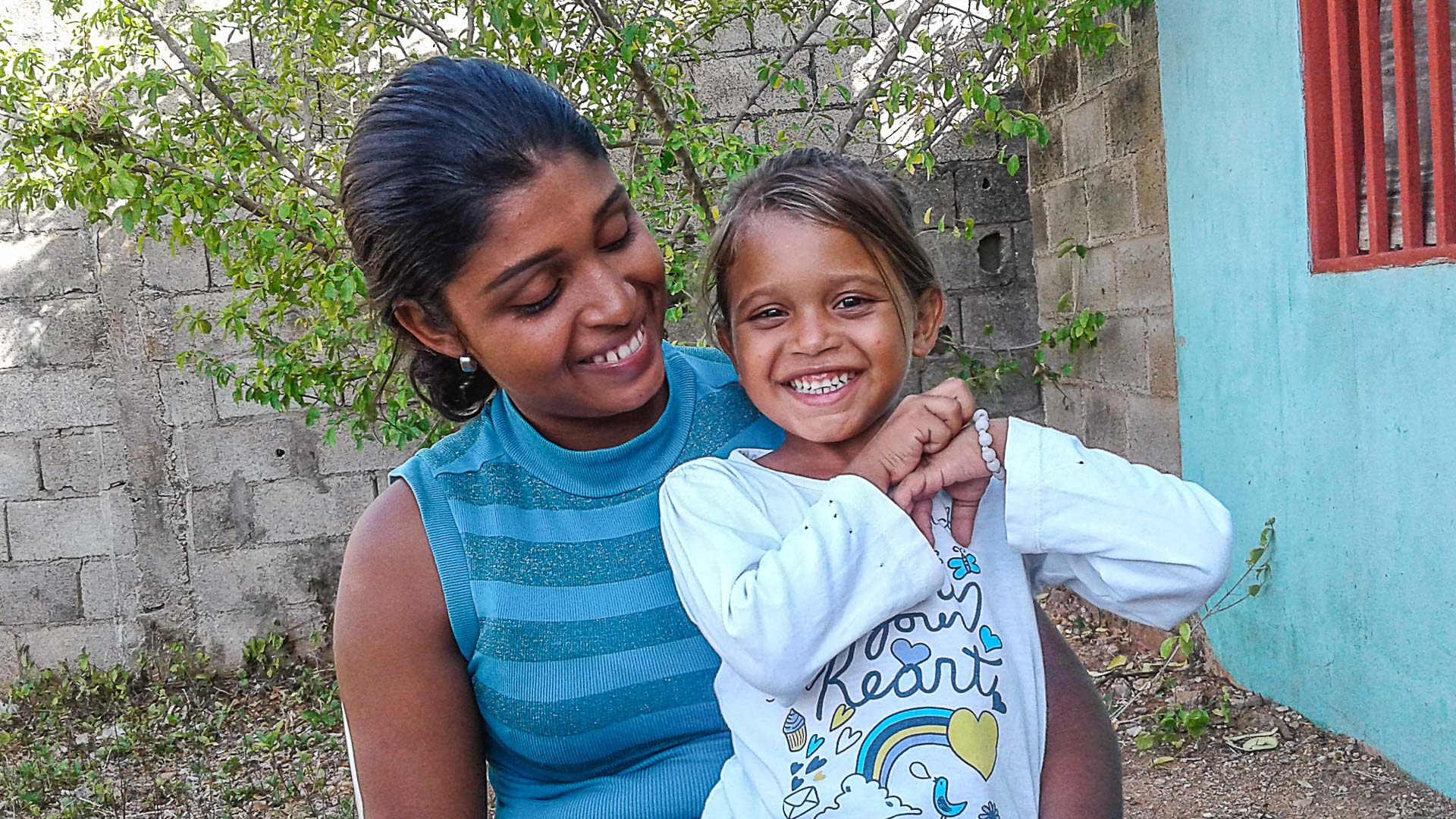

Three months ago, on April 23, 2019, Yubreilis left Güiria, a town on the west coast of the state of Sucre, for Trinidad and Tobago. Her idea was to find a job there so that she could be able to provide for her three daughters. The boat in which she and 37 others were sailing capsized. She is one of the eight survivors.
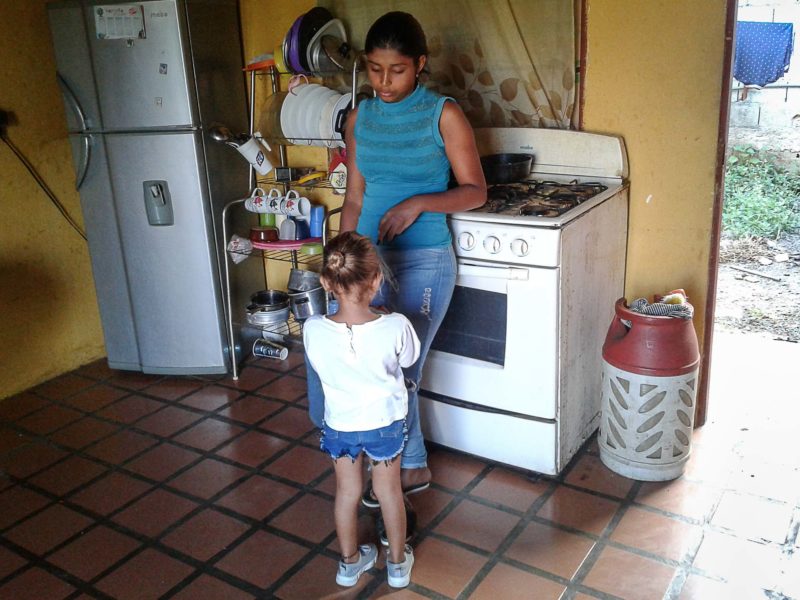 Photos: Nayrobis Rodríguez
Photos: Nayrobis Rodríguez
“God will give us a second chance.”
Angelica tried to calm Yubreilis, who wouldn’t stop crying. Sitting on a big rock facing the sea, they hoped that, by one of those miracles that happen once in a lifetime, someone would spot them and rescue them. It was the afternoon of April 25, 2019. Having swan and floated adrift for 37 hours, they had reached Boca de Dragón, on Patos Island, which lies between the waters of Trinidad and Tobago and Güiria, in western Sucre.
On the night of 23 April, just like the other 36 people who were travelling with them, they had fallen into the water when the peñero [a small fishing boat] in which they were heading to Trinidad and Tobago sank. After the accident, trying to put themselves to safety, they separated from the other passengers who were fighting for survival on the high seas. They saw them succumb to the pounding waves and to the power of the sea. They swam and reached a cave in Boca Dragón, an area known for its very strong sea currents, there where the waters of the Atlantic Ocean and the Caribbean Sea meet. Yubreilis had not stopped praying, shouting for help, or crying. She wanted to see her three daughters again, especially the one who was turning 8 months that day.
And there they were, that afternoon of April 25. They saw boats pass far away, too far away. They screamed, but their weak voices got lost in the wind. Suddenly, they saw a small boat a little bit closer to them. They shouted as loudly as the little energy that they had left could allow, but the people in the boat did not hear them. They kept screaming, louder, harrowingly. They shouted again, until they finally caught the attention of the people on the boat. The peñero approached. Mario, the father of Yubreilis’ daughters, was in it, accompanied by the godfather of one of the latter. They had not stopped looking for her since the news of the wreck broke in.
Yubreilis looked gaunt, with dark circles under her eyes, having spent so many sleepless hours. She cried when she saw Mario. She cried because she felt she was safe and because she would be back home. She cried until they made it to the town.
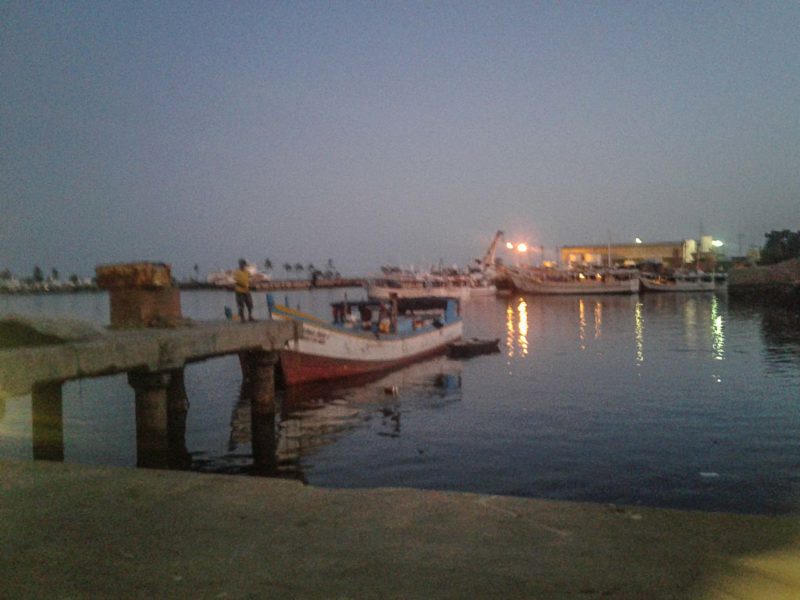
For a living, Yubreilis, 22, worked on the only thing she knew how to do: cut and dye hair, do manicures and pedicures and pluck and shape eyebrows. She learned it from her mother, a hairdresser who had been living in Trinidad for at least a year, where she settled and started a formal business in the field.
But the money that Yubreilis made in Güiria was not enough to buy the diapers and the formula that her 7-month-old baby needed, nor was it enough to buy clothes and medicines for her 3-year-old girl, much less to send her 5-year-old eldest to preschool and buy her uniforms, shoes and food. Everything was too expensive. Food, even products such as fish or tubers, was already being sold in dollars.
“I can’t let them starve to death,” she constantly said, confronted with the fact that it was becoming increasingly difficult for her to put food on the table for her daughters three times a day. It was then when she decided to leave the girls in the care of their father and his family and go to Trinidad, as many a neighbor in Güiria had been doing.
On average, about 100 people are smuggled out weekly from the farthest coast of Sucre’s coastal line aboard boats that carry no lifejackets. Each passenger has to pay USD 200 for the ride, and the boatmen, in turn, must pay about USD 500 to the National Guard, the Coast Guard or customs officials just to be allowed to set sail.
It all seemed simpler to Yubreilis: her mother lives in Trinidad. As soon as she arrived, she would ask a friend for advice on how to apply for political asylum, and if she was granted it, she would look for a formal job. She planned to send money to her daughters for food and medicine. And she dreamed of coming back in a few months and throwing a birthday party for her youngest.
Those were the plans.
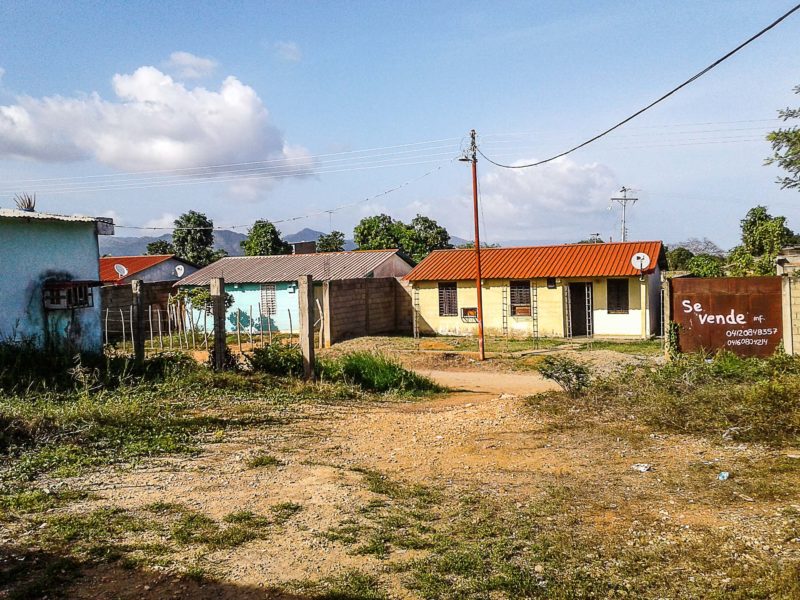
On the morning of Tuesday, April 23, Yubreilis met with Yocelys, a friend of hers, and told her about her idea to go to Trinidad. By one of life’s little coincidences, her friend told her that she was planning to travel there on a boat that same night.
“If you want to catch the ride, be at the middle pier at 6:00 p.m. and ask for Julio, the captain.”
Yubreilis didn’t think twice. She packed a suitcase with a few clothes, left her daughters at their paternal grandmother’s house and was at the dock at the right time. She went unnoticed by two national guards who could have stopped her, just as they regularly stopped passengers, to whom they asked for dollars in exchange for letting them board the peñeros. The young woman had no money on her. Not even for the boat ride. Her plan was to ask the captain to let her board and allow her to pay for the trip once they arrived in Chaguaramas, Trinidad, where her mother would be waiting for her with the money. And it worked: Julio, although he didn’t know her, accepted the deal.
On boarding the Jhonaili José boat, the passengers could tell that there was something wrong: the boat was leaking. Regardless, Julio stopped at other beaches to get more passengers on board. In the end, there were a total of nine men and 29 women, some of them teenagers who, rumor had it, were going to be sexually exploited. The boat also carried some sacks with lemon and copper, and many bags with clothes.
Yubreilis was all crammed into the skiff, with another woman sitting on her lap. The waves got stronger as they reached Boca Dragón. It was then that one of the motors went dead. Julio stopped the boat to ask for a phone so that he could call a contact in Trinidad and tell them that they were close to the shore. The small craft was full of water and began to sink. Everyone was screaming and crying.
Suddenly, the roll of a raging wave turned the boat over and they all fell into the sea. Those who could not swim tried not to drown by crawling on top of those who managed to stay afloat. Others, like Yubreilis, held on tight to the gas canisters, in an effort not to sink. But she felt that the leaking fuel was burning her, so she decided to cling to the overturned boat’s hull. Many wanted to clutch at that lifeline, but Yubreilis felt that they would make her drown. So, she decided to push away from the group and go in the opposite direction. Angélica, whom she had met that day and was traveling with her, followed suit.
“What if I let myself go? What if I give up?” she thought to herself as she cried, swimming with no fixed course. The vastness of the sea intimidated her. She didn’t think she could make it to the mainland, but somehow they managed to get to Patos Island. They were safe! There they settled in a cave. And then the day broke.
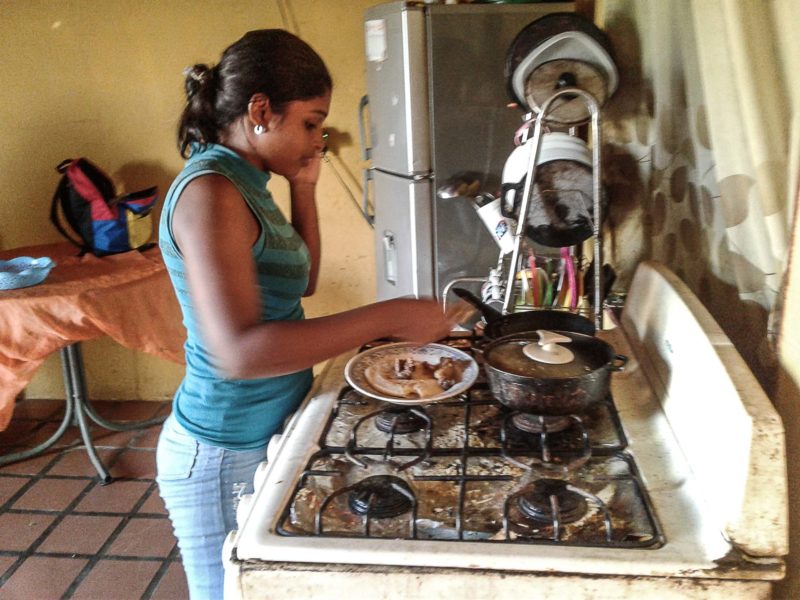
The moment they got word that the Jhonaili José had gone missing on the morning of Wednesday, April 24, people in Güiria began to demand the authorities to start searching for the passengers. But neither the National Guard nor the Coast Guard complied: they argued that they lacked the boats or fuel to search for the missing.
Then the villagers got organized and decided to search for their people. One after the other, the fishermen began to offer their boats to look for survivors. Some relatives brought gasoline, and others, especially those who owned grocery stores and supermarkets, donated food to feed the people who had undertaken the search efforts at sea.
In light of the community’s initiative, the authorities had no choice but to hand over gallons of gasoline for the boats. Although family members had demanded that the government made at least one helicopter available for tracking and aerial search, the help would only arrive three days later, on Saturday the 27th, when there was little chance of finding people alive.
Six other people had been rescued before Angélica and Yubreilis were located. The joy of finding two more survivors brought hope to the entire town.
But they would be the last ones.
The other 30 passengers seemed to have been swallowed up by the sea.
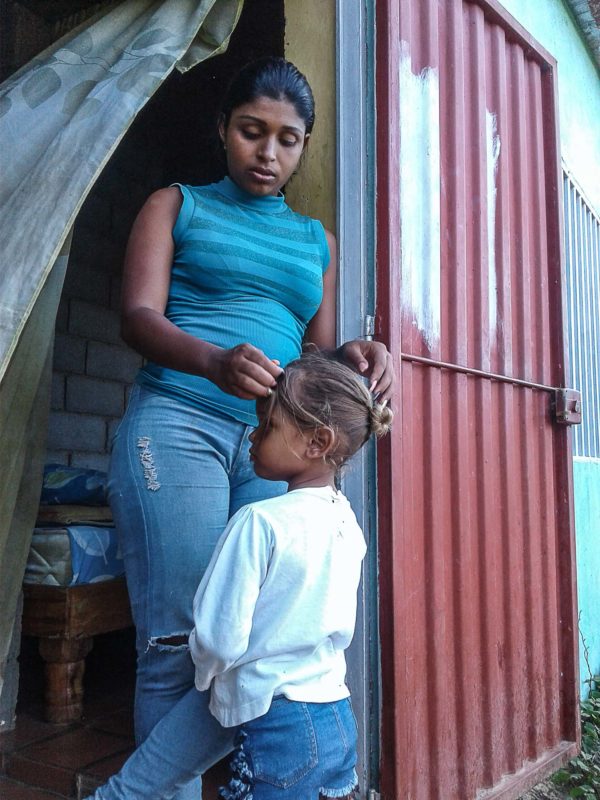
When they reached the mainland, Angélica and Yubreilis were immediately taken to an ambulance, which was standing by, waiting for survivors. They were transferred to the only medical center in town, where the rest of the shipwrecked had been hospitalized. There was a crowd at the entrance of both relatives of the missing and residents, looking for information about the rescued.
Yubreilis was dehydrated and sun-stricken, having spent so much time out there in the open. She had burns on her belly, on her face and on her back. While she was being treated in the hospital, she made a decision: she would never again try to travel to Trinidad or anywhere else. “I don’t want to leave here anymore. God really gave me a second chance and I must make the most of it; everything that life has in store for me I am going to live here; this is the place I should never have left,” she said to herself.
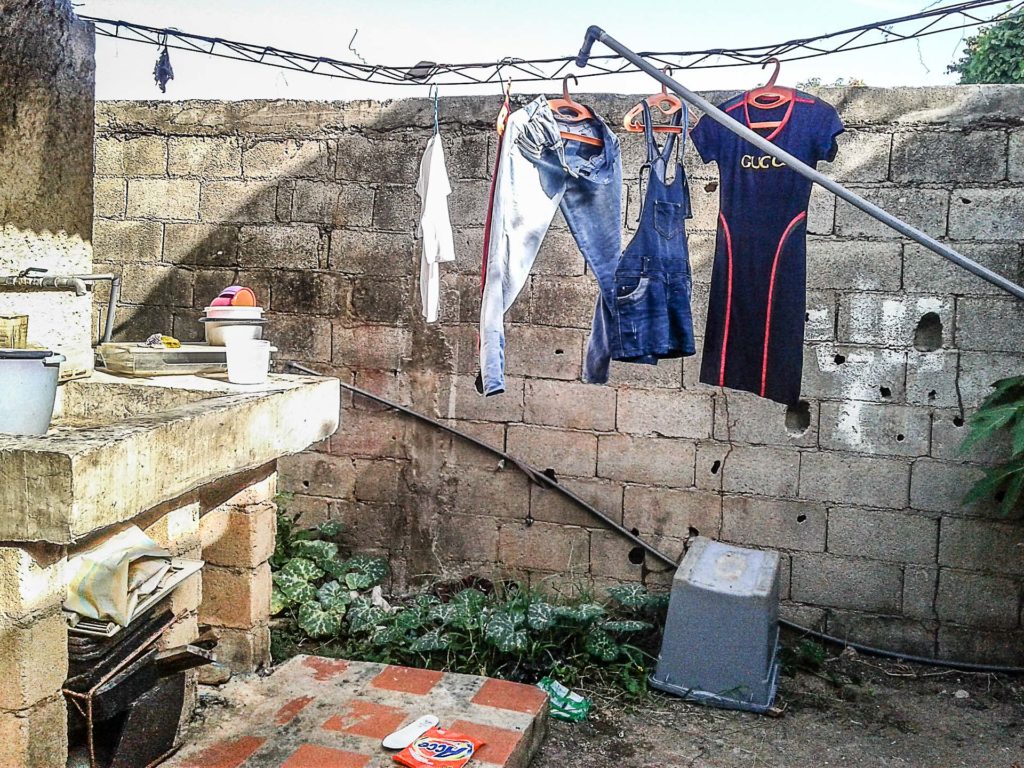
Now, in the town where she decided to stay, people look at her disapprovingly. The same people who celebrated her being rescued began to whisper as she passed by. “There goes the castaway,” “she walks around, so carefree, while others are missing,” “and how come it was precisely her who was saved and not the others? There must be something fishy!,” “look at her, all dressed up, out and about with her friends, as if nothing had happened,” “she should be jailed so that she could explain why she was saved and the others were not.”
Many comments reach her ears. She has felt like a pariah, an intruder who walks through the streets with everyone pointing at her.
“I’m not going to fear them, even if they try to intimidate me. They judge me because I am alive and because I can get out on the streets,” she told Angélica, one day that they bumped into each other. People said similar things about her.
“I think I am going to punch the next person who asks me what I’m so carefree out there, going about my business, when other people are still missing,” Angélica replied.
Yubreilis has a purpose to get over the accusations: she needs to provide for her daughters’ wellbeing. Since the accident, there has not been a single day that she hasn’t gone out to look for something to do. She is still there, dying hair, painting nails, selling food in a market stand, offering beauty products door-to-door. But she does all that while living in a lost town on the shores of a sea that, if anything, now fills her with fear.
Translation: Yazmine Livinalli

Note: This is a story of the Venezuelan website La vida de Nos. It is part of its project La vida de Nos Itinerante, which develops from storytelling workshops for journalists, human rights activists and photographers coming from 16 states of Venezuela.
1734 readings
I was ten years old when I decided I would be a journalist. I graduated from the Andrés Bello Catholic University in 2005 and I have been writing from Cumaná, state of Sucre, ever since. I am also a mother, a citizen, a reporter, a human rights activist and a union delegate.
Un Comentario sobre;